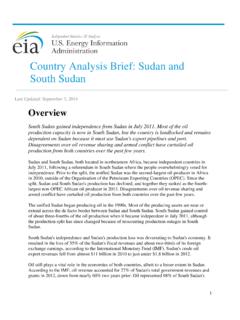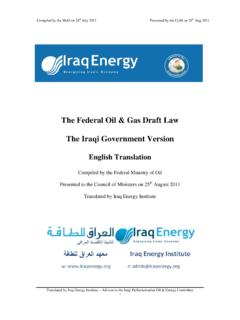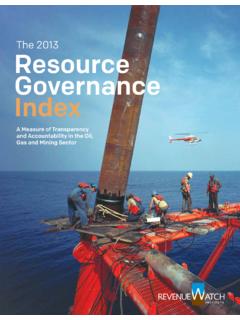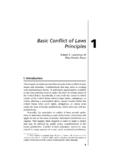Transcription of Basic Law for Private Investment - EI Sourcebook
1 Basic Law for Private Investment LAW No 20/11. of May 20, 2011. Private Investment , on a par with public Investment , continues to be viewed by the State as a strategic and likely way to mobilize human, financial, material, and technological resources in order to boost the country's economic and social development, along with the competitiveness of its economy, as well as increasing job creation and improving the people's living standards. Whereas the approval of Law 11/03, of May 13, 2003 Basic Private Investment Law enabled the State, in essence, to achieve its intended aims with the reorganization operated at that time on the Private Investment system as a whole;. It is now imperative to introduce the adjustments revealed to be necessary after the application of the major legal instruments regulating Private Investment . This fine-tuning will be made with a view to harmonizing the general interests of the State and the economy with those of Private investors.
2 Above all, it is vital to maintain and bolster Private investor rights and guarantees, as well as to introduce clear, simple and expedite rules and procedures into the Private - Investment approval process. On the other hand, it is equally imperative to create a system of incentives, benefits, and facilities for investors that really addresses the economic and social impact of projects on the economy. With this approach, the attractiveness of the system regulating Private Investment does not harm the collection of public revenue, revealed as essential to putting the State's social function into practice. Furthermore, whereas a need exists to adapt the legal framework of Private Investment to the new constitutional reality of Angola and the system of tax and customs incentives and benefits to the taxation reform currently underway;. The National Assembly hereby approves, by mandate of the people, in accordance with the combined provisions of 2 of article 165 and of paragraph d) of 2 of article 166, both enshrined in the Constitution of the Republic of Angola, the following: 1.
3 Private Investment LAW. HEADING I. General Provisions Chapter I. Purpose, Definitions & Scope Article 1. (Purpose). This Law establishes the general basis underpinning Private Investment in the Republic of Angola and defines the principles and system regarding eligibility for incentives and other facilities to be granted by the State to this type of Investment . Article 2. (Definitions). 1. For the purposes of this law, the following is defined: a) Private Investment the utilization in national territory of capital, technologies and know-how, capital equipment and other assets, in specific economic projects, or the utilization of funds earmarked for the setting up of new companies, consortia or other forms of corporate representation of Private domestic or foreign companies, as well as the acquisition of the whole or part of existing companies incorporated under Angolan law, with a view to the implementation or continuity of a specific economic activity in accordance with their corporate purposes, provided that those investments are qualifiable as such, under the terms of article 3 of this law.
4 B) Qualified Private Investment is all that which falls within the scope of article 3 of this law;. c) Private Investor any person, individual or corporate, resident or non-resident, irrespective of their nationality, making investments in national territory earmarked for the purposes referred to in paragraph a);. 2. d) Domestic Investment the utilization, by way of recourse to assets domiciled in national territory or derived from financing obtained from abroad with amortization to be made by recourse to the country's Foreign Exchange Fund of cap- ital, technologies and know-how, capital equipment and other assets, in specific economic projects, or also the utilization of those funds in the setting up of new companies, consortia or other forms of corporate representation of Private companies, domestic or foreign, as well as the acquisition of the whole or part of existing companies incorporated under Angolan law, with a view to the implementation or continuity of a specific economic activity, in accordance with their corporate purposes.
5 E) Domestic Investor any person, individual or corporate, with resident foreign- currency status, irrespective of their nationality, making investments in the country, with capital domiciled in Angola or derived from financing obtained from abroad, without entitlement to repatriate dividends or profits abroad. Should the capital not be domiciled in national territory, a loan agreement must be presented for licensing, in accordance with foreign exchange legislation;. f) Foreign Investment the importation and utilization in Angola, with recourse to assets domiciled: i) inside and outside national territory, by individual persons or corporate entities, with non-resident foreign-currency status, of capital, technologies and know- how, capital equipment and other assets, in specific economic projects, or also the utilization of those funds in the setting up of new companies, consortia, or other forms of corporate representation of Private companies, domestic or foreign, as well as the acquisition of the whole or part of existing companies incorporated under Angolan law, with a view to the implementation or continuity of a specific economic activity, in accordance with their corporate purposes.
6 Ii) outside national territory, by individual persons or corporate entities, with resident foreign-currency status, of capital, technologies and know-how, capital equipment and other assets, in specific economic projects, or also the utilization of those funds in the setting up of new companies, consortia, or other forms of corporate representation of Private companies, domestic or foreign, as well as the acquisition of the whole or part of existing companies incorporated under Angolan law, with a view to the implementation or continuity of a specific economic activity, in accordance with their corporate purposes;. iii) for the purposes of that determined in the preceding paragraph, in relation to capital not domiciled in national territory obtained by recourse to credit, its amortization must be made without recourse to the Angolan Foreign Exchange Fund;. g) Foreign Investor any person, individual or corporate, with resident foreign-currency status or not, irrespective of their nationality, bringing capital domiciled out- side Angola into or utilizing same in national territory, under the terms of the pre- ceding paragraph, with entitlement to transfer profits and dividends abroad.
7 H) Foreign Reinvestment Investment in national territory of the whole or of part of profits generated 3. by way of a foreign Investment , and which, in accordance with this law, are suitable for export, must abide by the same rules to which foreign investments are subject;. i) Indirect Investment all domestic or foreign Investment that includes, separately or cumulatively, forms of loans, shareholder loans, supplementary capital loans, patented technology, technical processes, industrial secrets and models, franchising, registered brands, technical assistance and other forms of access to their utilization, whether in terms of exclusivity or licensing restricted to geographical areas or fields of industrial and/or commercial activity;. j) Direct Investment all Investment , domestic or foreign, implemented in all those forms that do not come under the definition of indirect Investment , as referred to in the preceding paragraph;. k) ANIP National Agency for Private Investment .
8 L) CNFI Facilities & Incentives Negotiating Committee, an intermittent intersectorial body, which works with ANIP to analyze and assess Private Investment proposals, setting up negotiations with investors vis- -vis the incentives and benefits applied for by the latter;. m) BNA Banco Nacional de Angola, which acts as the central bank and is the country's highest foreign exchange authority;. n) Special Economic Zones Investment areas deemed special, in accordance with criteria defined by the Executive;. o) CRIP Private Investment Registration Certificate. Article 3. (Scope). 1. This law applies to foreign and domestic investments, whose amounts correspond to a value equal to or exceeding USD 1,000,000 (one million US dollars) or, in the case of a domestic Investment , its equivalent in national currency. 2. The Private Investment scheme provided for in this law is only applicable to Investment projects implemented in national territory.
9 3. This Private Investment scheme is not applicable to investments implemented by corporate entities incorporated under Private law with 50% or more of their capital stock held by the State or by any other state-owned corporate entity. 4. When an Investment stands above the value established in 1 and it is implemented by a corporate entity, only those shareholders who, in proportion to their share- holding, can prove that they have invested at least USD 1,000,000 (one million US dollars) in the Investment project concerned, are individually entitled to Private investor status. 5. For the purposes of that stipulated in the preceding numbers, consortia, joint ventures and other 4. relevant forms of entrepreneurial partnership, must be taken into consideration. 6. The system of incentives and other facilities to be granted by the State to investors of Angolan nationality, within the corporate development framework, is regulated by its own specific law.
10 Article 4. (Special Investment Schemes). 1. Private Investment schemes, as well as their inherent rights, guarantees and incentives, applicable to those spheres of activities entailing the exploration of oil and gas, diamonds, financial institutions, and other sectors determined by law, are established in Specific legislation. 2. The entities legally empowered to authorize the implementation of the investments defined in the preceding number are obligated, within a period of 30 days counting from the date of the said authorization, to send information to ANIP containing data on the respective overall value, location of Investment , form, scheme, number of jobs created, and all other information considered relevant for the purposes of the centralized registration and statistical control of Private investments. 3. ANIP must issue a certificate for registration in a form differing from that used for the Private Investment Registration Certificate (CRIP), which is checked against projects approved by it.
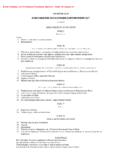
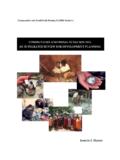
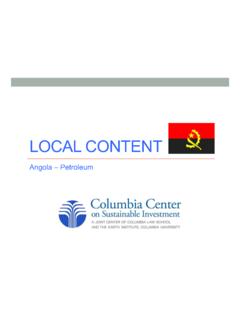
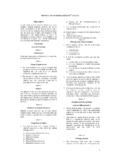
![[Chap0704]CHAPTER 7:04 CORRUPT PRACTICES …](/cache/preview/6/f/6/e/c/c/4/c/thumb-6f6ecc4c9459ba6eec9653fd3f470db0.jpg)
